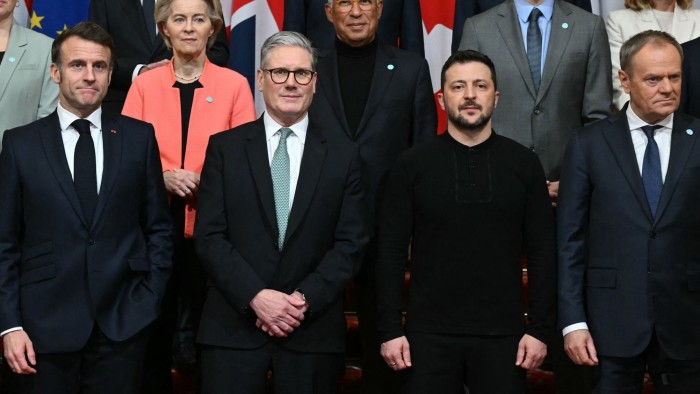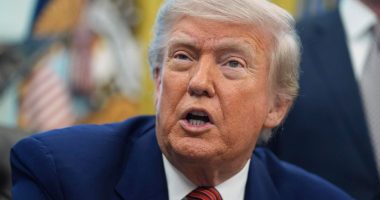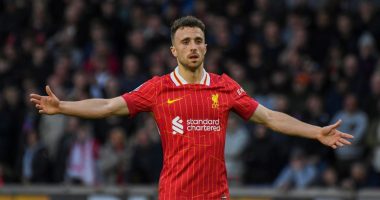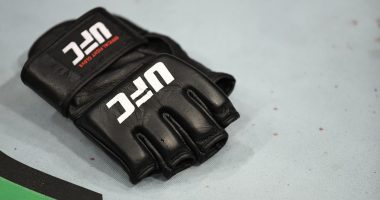Share this @internewscast.com
Stay informed with free updates
This Saturday, the leaders of France, Germany, Poland, and the UK are set to visit Kyiv. This comes amid increasing global calls for Russia to agree to a permanent ceasefire and enter into peace negotiations.
The visit serves to demonstrate Western support for President Volodymyr Zelenskyy, particularly following Vladimir Putin’s recent hosting of the leaders of China and Brazil at Moscow’s Victory Day event, which marks the 80th anniversary of the end of World War II.
Germany’s newly appointed chancellor, Friedrich Merz, will accompany French President Emmanuel Macron, as well as the British and Polish prime ministers, Sir Keir Starmer and Donald Tusk, respectively. This marks the group’s inaugural trip together since Merz assumed the role of chancellor earlier this month.

In a joint statement issued ahead of the visit, the leaders called for a 30-day ceasefire to invigorate US-led negotiations aimed at ending the war.
“We, the leaders of France, Germany, Poland, the United Kingdom will stand in Kyiv in solidarity with Ukraine against Russia’s barbaric and illegal full-scale invasion,” they said, adding that they fully support US President Donald Trump’s calls for a peace deal and urged Russia “to stop obstructing efforts to secure an enduring peace”.
“We are clear the bloodshed must end, Russia must stop its illegal invasion, and Ukraine must be able to prosper as a safe, secure and sovereign nation within its internationally recognised borders for generations to come.”
Zelenskyy said on Friday that Ukraine remained ready for “a reliable and lasting ceasefire for at least 30 days”.
Trump’s proposed 30-day ceasefire has previously been backed by Kyiv but Putin never agreed to it. The Russian leader has pledged to pause attacks over holidays and on energy infrastructure in Ukraine, but his forces have continued to strike civilian areas in almost every region of the country in recent months.
Ballistic missiles and drones struck Kyiv earlier this week, killing a mother and son. That attack came two weeks after another on Ukraine’s capital that killed 12 and injured more than 80.
The European leaders said they were prepared to support talks between Ukraine and Russia and explore how a ceasefire could be implemented to “prepare for a full peace deal”.

People familiar with the leaders’ agenda on Saturday told the Financial Times that the US, Europe and Ukraine are close to finalising a plan for an initial 30-day unconditional ceasefire that would see them impose harsh new sanctions on Russia if the Kremlin refused to go along and continue its full-blown war.
The EU on Friday called for “a full, unconditional ceasefire of at least 30 days” saying that it was up to Russia “to show its willingness to achieve peace”. The statement was issued by the bloc’s chief diplomat Kaja Kallas and was backed by all its 27 members, including Hungary and Slovakia who had previously refused to sign off on such statements.
EU foreign ministers from some 20 nations on Friday travelled to the western Ukrainian city of Lviv where they declared their support for a special tribunal to prosecute senior Russian officials for war crimes carried out by Moscow’s forces during the war. The court will be established under a joint agreement between Ukraine and the Council of Europe, the continent’s top human rights body.
Separately on Friday, the UK announced new sanctions on Russia’s “shadow fleet” of vessels used to shuttle oil around the world while avoiding restrictions imposed by western nations after Putin launched his full-scale invasion of Ukraine in February 2022.
“Every step that limits the Kremlin’s ability to fund its war brings peace closer. The UK is once again demonstrating a leadership approach,” Zelenskyy said on Friday, thanking Starmer.
“If Russia keeps dragging out the war, we’ll need stronger sanctions,” Zelenskyy said. “Especially if they break the ceasefire when it finally happens.”
During their visit on Saturday, the leaders are expected to honour Ukrainian soldiers killed in the war and pay their respects at Kyiv’s symbolic Independence Square. Other European counterparts will later join virtually to discuss plans for a coalition that would support Ukraine’s air, land and maritime defences, and help rebuild its military after any peace agreement and ensure its long-term security.
Additional reporting by Lucy Fisher in London and Henry Foy in Warsaw














